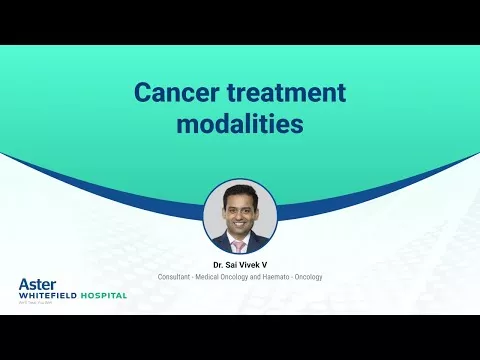Dr. Sai Vivek V, Consultant in Medical Oncology and Haemato-Oncology at Aster Whitefield Hospital discusses oral cavity cancers, including risk factors, symptoms, diagnosis, and treatment options. Oral cavity cancers is a common cancer type in men in India.
Risk factors
Several factors increase the risk of oral cavity cancer, including tobacco use (smoking and smokeless tobacco), certain viral infections, alcohol consumption, and poor nutrition. Dr. Sai emphasizes avoiding tobacco use as the primary preventive measure for oral cavity cancers.
Symptoms
The signs of oral cavity cancer to watch out for, include mouth or lip ulcers that don't heal, lumps in the neck, and white or red patches inside the mouth or on the cheeks. If you experience any of these symptoms, consulting a doctor is crucial.
Diagnosis process
A biopsy is usually performed to confirm oral cavity cancer, followed by imaging tests like CT scans, MRIs, or PET scans to determine the cancer's stage.
Treatment options
The treatment approach for oral cavity cancer typically involves a combination of three modalities: surgery, chemotherapy, and radiation therapy. A team of specialists will assess each case and determine the most suitable treatment plan. Besides traditional chemotherapy, newer targeted therapies and immunotherapies are emerging as potential options with fewer side effects and potentially better outcomes.
For more information about oral cavity cancer treatment, consult our experts at Aster Whitefield Hospital.
To book an appointment, contact us at 080-4510 8888.










